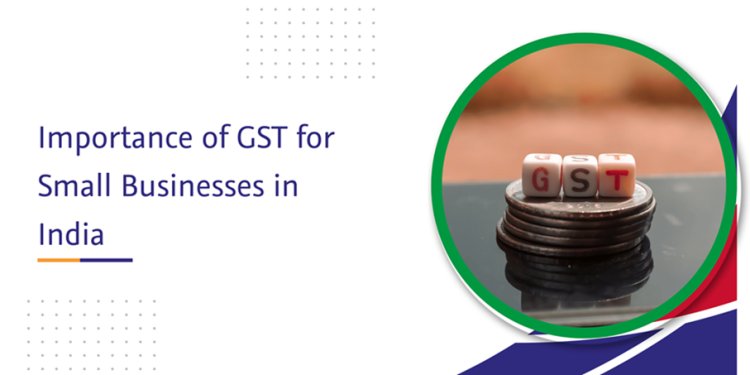GST Impact on Small Businesses in India
Share this Post to earn Money ( Upto ₹100 per 1000 Views )

The Goods and Services Tax (GST) was introduced in India on July 1, 2017, as a landmark tax reform aimed at simplifying and unifying the complex tax structure of the country. While GST has brought several benefits, its impact on small businesses has been multifaceted. This article explores how GST has affected small businesses in India, highlighting both the positive outcomes and the challenges faced by this vital segment of the economy.
Simplification of Tax Structure
Before GST, small businesses in India had to navigate a maze of indirect taxes, including Value Added Tax (VAT), Service Tax, Central Sales Tax (CST), and numerous state-specific levies. This complex tax system created a significant administrative burden and increased compliance costs. GST replaced these multiple taxes with a single, unified tax, greatly simplifying the tax structure. This has made it easier for small businesses to understand and comply with tax regulations, reducing the time and effort spent on tax-related matters.
Increased Compliance Requirements
While GST has simplified the tax structure, it has also introduced new compliance requirements that can be challenging for small businesses. Under GST, businesses are required to file monthly returns, maintain detailed records of transactions, and ensure accurate reporting of input tax credits. This increased compliance burden has necessitated investments in accounting software and professional services, which can be costly for small businesses with limited resources.
Moreover, the frequent changes in GST rules and rates have added to the complexity. Small business owners need to stay updated with these changes to ensure compliance, which can be time-consuming and overwhelming.
Input Tax Credit (ITC) Benefits
One of the significant advantages of GST for small businesses is the Input Tax Credit (ITC) mechanism. ITC allows businesses to claim credit for the GST paid on inputs, which can be offset against the GST payable on their output. This helps in reducing the overall tax burden and improving cash flow.
For example, a small manufacturing business can claim ITC on the GST paid for raw materials, machinery, and other inputs. This reduces the effective cost of production, making the business more competitive. However, availing ITC requires meticulous record-keeping and timely filing of returns, which can be a challenge for small businesses.
Formalization of the Economy
GST has played a crucial role in the formalization of the Indian economy. Many small businesses that previously operated in the informal sector to avoid taxes have now registered under GST to avail input tax credit and other benefits. This shift towards formalization has several advantages, including better access to credit, increased transparency, and improved business credibility.
Formalization also brings small businesses under the purview of government regulations and schemes, enabling them to benefit from various support initiatives aimed at promoting small and medium enterprises (SMEs).
Challenges of Increased Costs
While GST has brought benefits like ITC and simplified tax compliance, it has also led to an increase in costs for some small businesses. The cost of compliance, including accounting software, professional services, and administrative efforts, can be significant. Additionally, the initial implementation phase saw many small businesses struggling to adapt to the new system, leading to disruptions in operations and cash flow issues.
Furthermore, certain categories of goods and services attract higher GST rates, which can increase the cost of doing business for small enterprises dealing in those products. For instance, items like luxury goods, tobacco, and some consumer electronics are subject to higher GST rates, impacting small businesses in these sectors.
Impact on Cash Flow
The implementation of GST has had mixed effects on the cash flow of small businesses. On one hand, the ITC mechanism helps in reducing the tax burden and improving cash flow. On the other hand, delays in receiving GST refunds can create cash flow challenges. Small businesses often operate with limited working capital, and any delay in tax refunds can strain their finances, affecting their ability to manage day-to-day operations.
Digital Transformation
GST has necessitated the adoption of digital tools and technologies for tax compliance. Small businesses have had to invest in accounting software, digital invoicing, and other technology solutions to comply with GST regulations. While this digital transformation has increased compliance costs initially, it has also brought long-term benefits by improving efficiency, accuracy, and transparency in business operations.
Government Support and Easing Compliance
Recognizing the challenges faced by small businesses, the government has taken several steps to ease the compliance burden under GST. Measures such as extending return filing deadlines, simplifying the GST return filing process, and providing training and support to small businesses have been implemented. The introduction of the Composition Scheme, which allows small businesses with an annual turnover of up to ₹1.5 crore to pay a fixed GST rate, has also provided relief by reducing compliance requirements and tax rates for eligible businesses.
Conclusion
The introduction of GST has had a profound impact on small businesses in India. While it has simplified the tax structure and brought benefits like input tax credit and formalization, it has also increased compliance requirements and costs. Small businesses have had to navigate these challenges by adopting digital tools, investing in professional services, and staying updated with frequent changes in GST regulations.
Overall, GST has brought about significant changes in the way small businesses operate, promoting transparency and efficiency. By addressing the challenges and providing continuous support, the government can help small businesses fully harness the benefits of GST, driving growth and development in this crucial sector of the Indian economy.
















